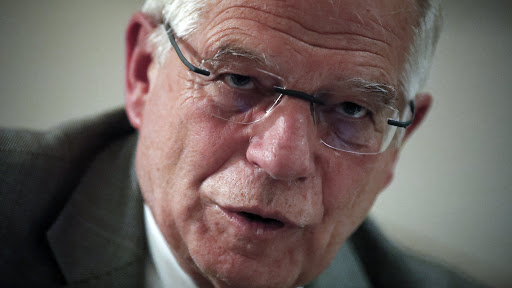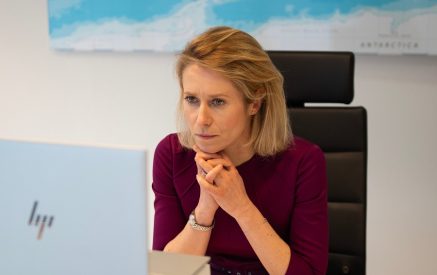Russia: Speech by High Representative/Vice-President Josep Borrell at the EP debate on his visit to Moscow
Ms President, Honourable Members of the European Parliament,
Russia-EU relations have come full circle since the 1990 Paris Charter. This Charter represented the equivalent of what we called the “End of History”, after the fall of the Berlin Wall. The vision of a common space from Lisbon to Vladivostok has not materialised, and Russia has not fulfilled the expectation of becoming a modern democracy.
Instead, there is a deep disappointment, and growing mistrust between the European Union and Russia.
Read also
Many of the traditional pillars of Russia-European relations are giving way. Conflicts in Ukraine, the situation in the South Caucasus and Moldova/Transnistria are fueling EU-Russia tensions but they are also their product. Belarus also.
The Russian economic ties with Europe have been severely hit by sanctions. Energy shipments, that have been for decades the backbone of the strategic relationship between Moscow and Europe, will be deeply affected by the “greening” of the world economy. Maybe during our discussions we can come back to this issue.
Political dialogue has come to a standstill since the 2014 conflict in Ukraine. Since then, the Russian economy has been shrinking. Today the GPD per capita is 30% less and the adversity of the present political climate makes values and principles a sore point once again.
Then, there is the Navalny case. It is in this context that I decided to travel to Moscow last week. The purpose of the visit was twofold. First, to convey, eye to eye, face to face, the European Union’s position on matters of concern to us: human rights, political freedoms and the situation of Mr [Alexei] Navalny. This I did and they [the Russian authorities] did not appreciate [it]: the case of Alexei Navalny was at the centre of my tense exchange with Minister [for Foreign Affairs or Russia, Sergei] Lavrov.
Second, as part of the preparation of the discussion of the next European Council on [EU-]Russia relations – scheduled for March – I also wanted to test if the Russian authorities are interested in a serious attempt to reverse the deterioration of our relations and seize the opportunity to have a more constructive dialogue. The answer has been clear: No, they are not. They are not if we continue to put the political situation and human rights issues in the package. But human rights are part of our DNA; we cannot refuse to talk about it.
My visit included consultations with Foreign Minister Sergei Lavrov, meetings with civil society representatives, think tankers and representatives of European business, journalists and a number of European Union Ambassadors. I also paid tribute to Boris Nemtsov who was murdered six years ago, shot dead on a bridge near the Kremlin. His tragic assassination – never clarified – was a warning of what we are seeing now.
This travel was taking place in a particularly tense context and this visit presented obvious risks. I took them. I took them, on the one hand, because we condemned the handling of the Navalny affair. On the other hand, because it allowed me to assess first-hand the challenges of engaging Russia. I had no illusions before this visit. I am even more worried after [it].
What [did] I take from my interactions? First, the Russian government is going down a worrisome authoritarian route. The space for civil society [and] freedom of expression continues to narrow and there seems to be almost no room for development of democratic alternatives. The Russian authorities have shown in the Navalny case that they are merciless in stifling any such attempts.
Indeed, the current power structure in Russia – I’d like to talk about the “power structure in Russia” and not about “Russia”, because “Russia” [is] the Russian people – the current power structure in Russia combining vested economic interests, military and political control leaves no opening for democratic rule of law. Strong push back on any discussion related to human rights and democratic values indicates this is considered for them as an existential threat.
Second, the visit confirmed the long-running trend whereby Russia is disconnecting from Europe, with little or no progress on conflicts in our common neighbourhood. And as I said, they are disconnected because they consider our liberal democratic system as an existential threat for them.
During my meeting with Minister Lavrov, the discussion became heated, as I called for Mr Navalny’s immediate and unconditional release, as well as for a full and impartial investigation into his assassination attempt. I also asked him if I could meet Alexei Navalny and they addressed me to the court. It was impossible due to time constraints and the fact that Mr Navalny was sitting in front of the court at that time. But a senior member of my delegation met with Mr Navalny’s lawyer during the visit and we will continue maintaining contact with the team to signify our support.
We also had exchanges on foreign policy issues. I insisted on the need to advance towards the full implementation of the Minsk Agreements and to fully respect Ukraine’s territorial integrity. I underlined the need to heed the call of the people of Belarus to freely choose their President.
However, on a few issues, notably on the JCPOA (Joint Comprehensive Plan of Action), we have managed to establish effective cooperation over the past years. There may be other issues, such as supporting Israel-Palestinian dialogue, where we could expand our engagement. But the overall environment of the visit did not allow [us] to explore this further.
In my exchange, one thing became clear: there is no intention on the Russian side to engage in a constructive discussion if we address human rights and political freedoms. The news of the expulsion of three diplomats on the basis of unfounded allegations came when we were ending our talks. And it did not come as an announcement from the Russian side, we knew it from the [social] networks. I understood it was a clear message. The meeting was over. I asked Minister Lavrov to reverse this decision, but to no avail. That same night, I issued a statement denouncing such [a] confrontational move.
Now, allow me to look at the conclusions I draw from the visit. I am very concerned over the perspectives of the Russian authorities’ geostrategic choices and the implications that their actions will have for us and for Russian society. We are at a crossroads in our relations with Russia and the choices that we will make will determine the international power dynamics in this century and, notably, whether we will advance towards a more cooperative or towards a more polarised model, based on closed or on more free societies.
First, we will discuss this issue at the Foreign Affairs Council on the next 22nd of February and at the European Council in March. This will provide guidance on the way forward and it will be for the Member States to decide the next step, but yes, this could include sanctions. I will put forward concrete proposals using the right of initiative that the High Representative has.
Containment efforts should include combining robust action against disinformation, cyber-attacks, and other possible hybrid challenges.
Second, at the same time, despite any difficulty, it is of key importance to preserve space for official engagement where it is in our interest. Russia remains our biggest neighbour. We must define a modus vivendi that will avoid permanent confrontation.
Third, but not last, we must find a way to continue engaging with Russian society. Russians form, mostly, a European country and an important part of the Russian population wishes to maintain strong links with the European Union and harbours genuine democratic aspirations. We should not turn our back [on] them. Maybe the Russian power wants to disengage, to disconnect from Europe, but we should not disconnect from the Russian civil society, from the Russian people.
We have to find a way to advance on these issues, and in doing so, to preserve our unity and determination. Without unity, there will not be determination. And without determination, we will not be able to address a good partnership. Russia has been trying to divide us, they seek to divide us. They have not succeeded. On Ukraine and on human rights issues they have not succeeded on dividing us. This seemed to be a clear objective during my visit. We should not fall into these traps.
On my side, Ms President, Honourable Members, I will continue defending the need to speak and maintain channels of communication open, looking at each other in the eyes, especially on issues that are conflictual. Defending [Mr] Navalny’s rights in Moscow when his trial was unfolding is a way of showing that foreign policy cannot be reduced to issuing written statements from a safe distance, from my office in the Berlaymont or in the European External Action Service. I think it was important to show our concerns, directly, in person, at the right moment and in the right place.
I hope this discussion will provide enlightenment for the future decisions of the European Union Council and look forward how to handle our relationship with Russia.
Thank you.
Link to the video: https://audiovisual.ec.europa.eu/en/video/I-201832
European Union


























































